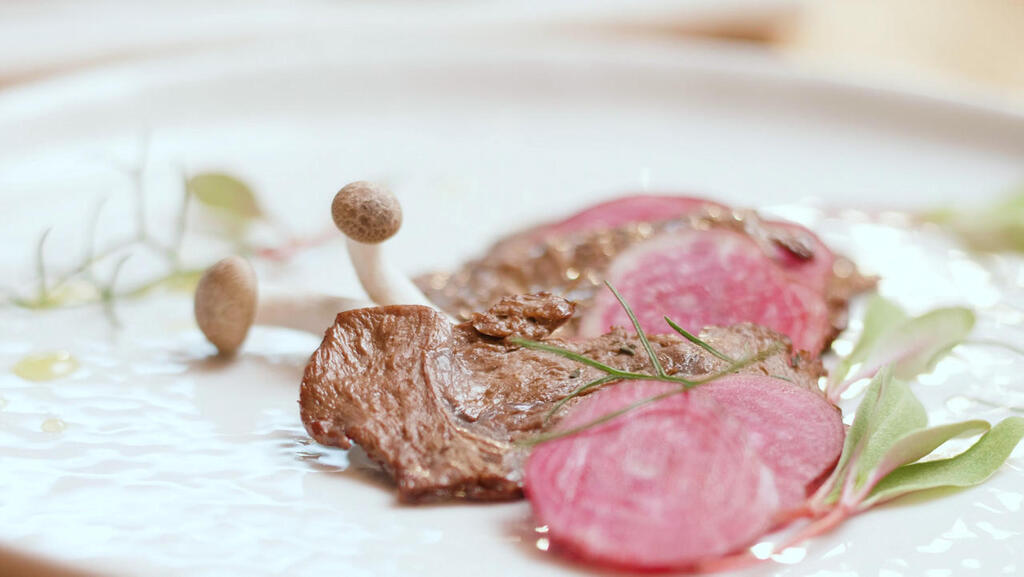
Aleph Farms' cultivated meat is kosher and pareve, says Chief Rabbi of Israel
"It's a very exciting day," said CEO and founder of Aleph Farms, Didier Toubia. "This is the first time that a halachic authority has determined, in a halachic ruling, the kosherness of cultivated meat"
In a new halachic ruling published on Wednesday, the Chief Rabbi of Israel, David Lau, announced that the cultivated meat produced by Aleph Farms is kosher pareve, as in doesn't include substances that contain dairy or meat ingredients. This, to the extent that the product - produced from stem cells - will be marked differently from animal meat produced by slaughter, to avoid an appearance that will create confusion among the public.
Lau made the decision after examining the production methods in the company's laboratory and speaking with experts in the field.
Aleph Farms is a veteran company in the development of cultivated meat. To date, the company has raised $120 million, and has developed steak slices cultivated from animal stem cells, which have not undergone genetic engineering. Last year, Aleph Farms announced the launch of a pilot production facility in Rehovot at an investment of $12 million.
The company's first product (Minute Steak) is currently being examined by the Israeli Ministry of Health and the American regulator. When the company receives marketing approval, it will be able to enter the market with its products for the first time. The company hopes to launch its products in Israel this year. After that, it plans to enter the Singapore and U.S. markets by the second half of next year.
Aleph Farms is the first company in Israel to receive such a ruling from a senior halachic authority, so that in the future it can offer its products to the public as pareve products. According to the halachic examination carried out by Rabbi Lau, as long as the cultivated meat is defined and marketed as "the closest vegetable product to meat", it can be labelled as kosher pareve. Rabbi Lau noted that if the product will be marketed as meat or meat products, and "in particular, if it will be similar to meat in taste and smell" it will still be defined as kosher but should not be mixed or consumed with dairy products in any way.
"It's a very exciting day," said CEO and founder of the company, Didier Toubia. "This is the first time that a halachic authority has determined, in a halachic ruling, the kosherness of cultivated meat. This is a milestone for the industry. We are a global company with Israeli roots, and it is very important for us to make our meat accessible to everyone. At the same time, we are also working on halal approval for the products."
The reason Aleph Farms' products were approved as pareve is due to the company's production method. Aleph Farms produces stem cells from a fertilized egg in a laboratory, without requiring animals or slaughter. The current method extracts the stem cells from a fertilized egg even before it is attached to the animal's body, therefore Rabbi Lau believes that the fertilized egg in itself is not forbidden to eat. Therefore, the product is not considered meat, and there is no need to wait before consuming milk.














